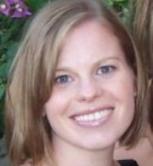 Amber Wichowsky is Assistant Professor in the Department of Political Science and Director of the Marquette Democracy Lab. Her teaching and research specializations include electoral behavior, public policy, urban politics, public opinion, and research methods. Her dissertation, The Competitive Cure? The Consequences of Competitive Elections, examined whether efforts to make congressional elections more competitive are warranted, and was awarded the Carl Albert Award for best dissertation in legislative studies by the American Political Science Association in 2011. She received her Ph.D. from the University of Wisconsin-Madison and was a Postdoctoral Associate at Yale University’s Center for the Study of American Politics. She previously worked on community and economic development policy and performance management initiatives at the U.S. Office of Management and Budget.
Amber Wichowsky is Assistant Professor in the Department of Political Science and Director of the Marquette Democracy Lab. Her teaching and research specializations include electoral behavior, public policy, urban politics, public opinion, and research methods. Her dissertation, The Competitive Cure? The Consequences of Competitive Elections, examined whether efforts to make congressional elections more competitive are warranted, and was awarded the Carl Albert Award for best dissertation in legislative studies by the American Political Science Association in 2011. She received her Ph.D. from the University of Wisconsin-Madison and was a Postdoctoral Associate at Yale University’s Center for the Study of American Politics. She previously worked on community and economic development policy and performance management initiatives at the U.S. Office of Management and Budget.
Amber’s publications include articles on voter turnout, welfare policy, campaign finance reform, legislative representation, presidential primaries, and an award-winning article on the civic implications of public policy evaluation. She is working on a book manuscript (joint with Meghan Condon, DePaul University) that examines how Americans use social comparisons to make sense of income inequality and how such frames of reference affect attitudes about redistribution. Her ongoing projects look at how residential income segregation conditions local civic engagement, the effects of the foreclosure crisis on voting participation, and how campaign finance disclosure affects the effectiveness of group-sponsored political ads. With Jessica Chen Weiss (Cornell) she is examining how congressional campaigns in recent elections have shaped US-China policymaking. She is also an occasional source for media coverage of electoral politics, including CNN, NPR, Fox News and several local news outlets.
“I am greatly indebted to Alan Gerber, Greg Huber, and others at CSAP and ISPS. Quite simply: I became a better scholar because of my time at Yale. Getting the time and space to write is always helpful, but I got much more than that during my postdoc year. I was warmly embraced by the research community at CSAP. Doors were open; friendships were made; and research networks were expanded. David Mayhew graciously read a chapter of my dissertation, which was significantly revised based on his feedback and has since been published in LSQ. Gabe Lenz (at CSAP on fellowship) gave me invaluable advice on another chapter that was subsequently published in JOP, and Jacob Hacker helped me think about how I could expand upon that analysis in future research. Not surprisingly, I also benefited from the Center’s rich expertise in experimental methods. Greg and Alan not only funded the experiments that my fellow postdoc, Conor Dowling, and I used to examine the effects of campaign finance anonymity on voting behavior, but critiqued our research design and pushed us to defend and refine our approach. I now use their structured process in designing and evaluating my experimental protocols. And although I am now far from New Haven, I continue to collaborate with people affiliated with CSAP (both past and present). I have no doubt that my postdoctoral fellowship changed the trajectory of my career.”
